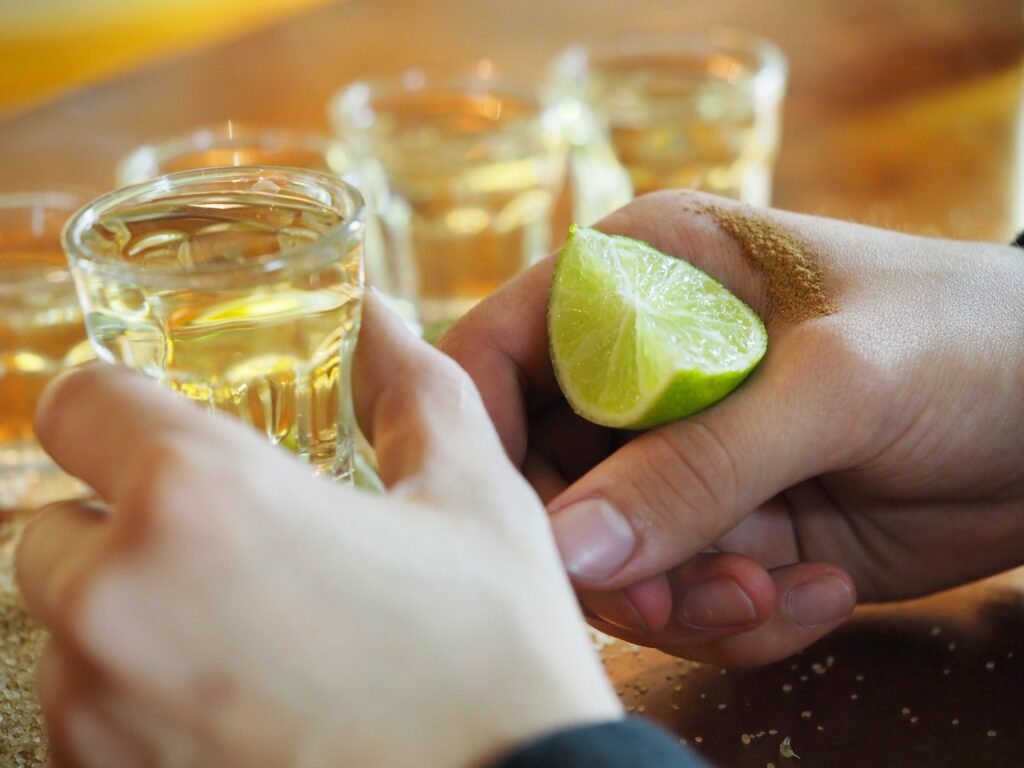Introduction to How to Get a Bartending License
On your first day at your new job as a bartender, it’s crucial to ensure that you have the necessary qualifications and skills to excel in the dynamic industry. Obtaining a bartending license is not just about pouring drinks; it’s about becoming proficient in responsible alcohol service, understanding the legal regulations surrounding the sale of alcohol, and honing your craft as a bartender.
What is a bartending license and why is it important?
A bartending license is a certification that allows you to legally serve alcohol in a bar or restaurant. It demonstrates that you have completed the necessary training and possess the knowledge and skills required to serve alcohol responsibly. Having a bartending license is crucial for several reasons:
- Legal Compliance: Without a proper license, you would be breaking the law by serving alcohol. It is essential to adhere to the legal requirements to avoid any potential fines or legal consequences.
- Safety: Obtaining a bartending license ensures that you understand how to handle alcohol safely and responsibly, minimizing the risk of accidents or harm to yourself or customers.
- Professionalism: Holding a bartending license demonstrates your commitment to your profession and your dedication to providing a high standard of service. It sets you apart from uncertified bartenders and improves your credibility in the industry.
Benefits of obtaining a bartending license
There are several clear benefits to obtaining a bartending license:
- Knowledge of Rules and Regulations: Through the licensing process, you will gain a comprehensive understanding of the legal regulations surrounding the sale and service of alcohol. This knowledge includes age verification, responsible serving practices, and recognizing signs of intoxication.
- Policy and Procedure Standards: Obtaining a license introduces you to industry standards, policies, and procedures. This knowledge helps you maintain a safe and welcoming environment for customers and contributes to the overall success of the establishment.
- ID Verification: As a licensed bartender, you will be trained in checking IDs to ensure that patrons are of legal drinking age. This skill is crucial to prevent underage drinking and maintain compliance with the law.
- Career Advancement: Having a bartending license opens up opportunities for career advancement and increases your chances of securing desirable positions in the industry. Many establishments require their bartenders to hold a valid license as a prerequisite for employment.
In conclusion, obtaining a bartending license is essential for anyone looking to excel in the bartending industry. It not only ensures legal compliance but also provides you with the necessary knowledge and skills to provide responsible alcohol service. With the benefits it offers, investing in a bartending license is a worthwhile endeavor for aspiring bartenders.
Understanding the Laws and Regulations
Researching the laws and regulations specific to your state
When obtaining a bartending license, it is crucial to have a thorough understanding of the laws and regulations that apply to the sale and service of alcohol in your specific state. Each state may have different requirements and restrictions regarding bartending licenses, so it is essential to conduct thorough research to ensure compliance.
Familiarizing yourself with age restrictions and alcohol serving guidelines
One of the key aspects of responsible alcohol service is adhering to age restrictions and guidelines. As a bartender, you must be aware of the legal drinking age in your state and strictly enforce it. Familiarize yourself with the identification requirements and verification procedures to ensure that you only serve alcohol to individuals of legal drinking age.
In addition, it is important to have a solid understanding of alcohol serving guidelines. This includes recognizing signs of intoxication, knowing when to refuse service, and understanding the proper handling and storage of alcoholic beverages. By familiarizing yourself with these guidelines, you can ensure the safety and well-being of both your customers and yourself.
Completing the necessary training and certification
To obtain a bartending license, completing an approved training program is typically required. These programs provide comprehensive knowledge about responsible alcohol service, legal regulations, and professional bartending skills. It is important to choose a training program that is approved by the appropriate regulatory bodies to ensure that your certification is valid and recognized.
During the training program, you will learn essential skills such as mixing and serving drinks, handling cash transactions, and maintaining a clean and organized workspace. Some training programs may also offer additional courses that can enhance your bartending knowledge, such as mixology techniques or wine appreciation.
Applying for the bartending license
Once you have completed the necessary training program, the next step is to apply for the bartending license. Each state may have different application requirements and fees, so it is crucial to carefully follow the instructions provided by the regulatory authorities.
The application process may include submitting an application form, providing personal details, and paying any associated fees. It is important to ensure that all information provided is accurate and up-to-date to avoid any delays or complications in obtaining your license.
By understanding the laws and regulations, completing the necessary training, and applying for the bartending license, you can position yourself for success in the bartending industry. Obtaining a bartending license not only demonstrates your commitment to professionalism and responsible alcohol service but also opens up opportunities for career advancement. Invest in your future as a bartender by obtaining the necessary qualifications and skills through proper licensing.

Finding an Accredited Online School
The advantages of online training for obtaining a bartending license
When it comes to obtaining a bartending license, online training can offer several advantages. Here are some benefits of choosing an accredited online school:
- Flexibility: Online courses allow you to complete the training at your own pace and from the comfort of your home. This flexibility is particularly useful if you have other commitments or a busy schedule.
- Convenience: With online training, you don’t have to travel to a physical location to attend classes. This saves time and money on transportation.
- Comprehensive curriculum: Accredited online schools provide comprehensive training programs that cover all the necessary topics, including responsible alcohol service, legal regulations, and bartending skills. These programs are designed to equip you with the knowledge and skills to excel in the industry.
- Supportive resources: Online schools often provide additional resources such as study materials, videos, and practice exams to enhance your learning experience. These resources can help you better understand the content and prepare for the licensing exam.
Tips for choosing a reputable online bartending school
When selecting an online bartending school, it is important to choose a reputable one that meets the necessary standards. Here are some tips to consider:
- Accreditation: Look for schools that are accredited by recognized accrediting bodies. Accreditation ensures that the school meets certain quality standards and that the training program is recognized by industry professionals.
- Positive reviews and testimonials: Read reviews and testimonials from past students to get an idea of their experience with the school. Positive feedback and success stories indicate that the school provides quality training.
- Curriculum and course content: Review the curriculum and course content to ensure that it covers all the necessary topics required for obtaining a bartending license. The course should provide comprehensive training in responsible alcohol service, legal regulations, and bartending skills.
- Instructor qualifications: Check the qualifications and experience of the instructors. They should have industry experience and expertise in bartending to effectively teach and guide you through the training program.
By considering these factors and choosing an accredited online school that meets your specific needs, you can obtain a bartending license and embark on a successful career in the industry. Always remember to thoroughly research and verify the legitimacy and credibility of any online school before enrolling in their training program.

Progressing through the Course
Overview of the coursework and topics covered
As you progress through the online bartending course, you will cover a range of topics that are essential for obtaining a bartending license. The coursework typically includes the following:
- Responsible Alcohol Service: You will learn the importance of serving alcohol responsibly and how to identify and handle customers who have had too much to drink.
- Legal Regulations: The course will provide a thorough understanding of the legal regulations surrounding the sale and service of alcohol. This knowledge is crucial for ensuring compliance and avoiding legal issues.
- Bartending Skills: You will develop essential bartending skills, including how to mix and serve various types of drinks, use bar equipment, and create signature cocktails.
- Customer Service: Customer service is a vital aspect of bartending. The course will teach you techniques for providing excellent customer service and creating a positive experience for patrons.
- Safety and Sanitation: Maintaining a safe and sanitary environment is crucial in the bartending industry. You will learn proper sanitation practices, as well as safety procedures for handling glassware, managing spills, and preventing accidents.
Setting a study schedule and staying on track
To ensure successful completion of the online bartending course, it is important to set a study schedule and stay on track. Here are some tips to help you stay organized and motivated:
- Determine your study hours: Choose a consistent time each day or week to dedicate to studying. This will help you establish a routine and ensure you allocate enough time to cover the coursework.
- Break it down: Divide the coursework into manageable sections and set specific goals for each study session. Breaking it down into smaller tasks will make it more achievable and less overwhelming.
- Stay motivated: Find ways to stay motivated throughout the course. This could include setting rewards for completing milestones, joining online study groups for support and accountability, or visualizing your future success as a licensed bartender.
- Eliminate distractions: Create a distraction-free study environment. Turn off notifications on your phone, find a quiet space to study, and remove any temptations or disturbances that could derail your focus.
By progressing through the course diligently and following a structured study schedule, you will gain the knowledge and skills necessary to excel in the bartending industry and successfully obtain your bartending license. Remember to stay committed, ask questions when needed, and utilize the resources provided by the online school to enhance your learning experience.

Practicing Mixology and Beverage Knowledge
Gaining expertise in mixing cocktails and understanding different drink recipes
As you progress through the online bartending course, you will have the opportunity to gain expertise in mixology and beverage knowledge. This includes learning different cocktail recipes and mastering the art of mixing drinks. The coursework may cover topics such as:
- Cocktail recipes: You will learn how to create a variety of classic and contemporary cocktails. This includes understanding the ingredients, measurements, and techniques required to make each drink.
- Mixology techniques: The course will teach you various mixology techniques, such as muddling, shaking, stirring, and layering. These techniques are essential for creating well-balanced and visually appealing cocktails.
- Garnishes and presentations: In addition to mixing cocktails, you will also learn about garnishes and presentations. This includes creating visually appealing garnishes, using appropriate glassware, and understanding the importance of presentation in the bartending industry.
Importance of beverage knowledge in bartending
Having a strong understanding of different beverages is crucial for bartenders. During the online bartending course, you will gain valuable beverage knowledge, including:
- Types of alcohol: You will learn about different types of alcohol, including spirits, liquors, wines, and beers. Understanding their characteristics, flavors, and origins will enable you to make informed recommendations to customers.
- Pairing drinks with food: The course may also cover the basics of pairing drinks with food. This knowledge can be valuable in creating a well-rounded dining experience for customers and enhancing their overall satisfaction.
- Local and international drinks: The course may provide insights into local and international drinks, including regional specialties and popular cocktails from around the world. This knowledge can help you cater to a diverse range of customers and expand your bartending repertoire.
By gaining expertise in mixology and beverage knowledge, you will not only enhance your bartending skills but also be able to provide exceptional service to customers. These skills are essential for excelling in the dynamic and competitive bartending industry.

Passing the Exam
Tips for preparing and studying for the bartending license exam
To increase your chances of passing the bartending license exam, it is essential to prepare and study effectively. Here are some tips to help you in your preparation:
- Review the course materials: Take the time to thoroughly review the materials provided during your online bartending course. Pay attention to key concepts, cocktail recipes, and important information related to beverage knowledge.
- Practice making cocktails: As the exam may include practical components, it is important to practice making cocktails. Familiarize yourself with the recipes covered in the course and practice your mixology techniques. This will help you become more confident in your abilities and ensure that you can accurately execute each drink.
- Take online practice exams: Many online bartending courses offer practice exams to help you prepare. Take advantage of these resources to gauge your understanding of the material and identify areas that may require further study.
- Seek additional resources: In addition to the materials provided in your course, consider utilizing other resources such as books, articles, or online videos to enhance your knowledge. This can provide a more comprehensive understanding of mixology and beverage knowledge.
Common exam formats and what to expect
Bartending license exams can vary in format, but they often include both written and practical components. Here are some common formats and what you can expect:
- Multiple-choice questions: The written portion of the exam may consist of multiple-choice questions that test your knowledge of cocktail recipes, mixology techniques, and beverage knowledge. It is important to carefully read each question and select the most accurate answer.
- Practical demonstrations: Some exams may require you to demonstrate your mixology skills by preparing specific cocktails. This may involve measuring ingredients, following recipe instructions, and showcasing proper techniques.
- Oral interviews: In some cases, exams may include an oral interview where you will be asked questions about bartending practices, customer service, and responsible alcohol service. This is an opportunity for examiners to assess your communication skills and professionalism.
It is crucial to familiarize yourself with the specific requirements and expectations of the bartending license exam in your region. By preparing effectively and knowing what to expect, you can increase your confidence and improve your chances of success.

Applying for the License
Steps to take after passing the exam to apply for your bartending license
To secure your bartending license after passing the exam, you will need to follow these steps:
- Contact the licensing authority: Reach out to the relevant licensing authority in your region to inquire about the application process and any specific requirements.
- Complete the application form: Obtain the necessary application form and fill it out accurately and completely. Double-check all the information before submitting to avoid any delays or rejections.
- Gather required documents: Make sure you have all the required documents ready to submit along with your application. These may include identification documents, proof of age, proof of residency, and any other documentation specified by the licensing authority.
- Pay the application fee: Most bartending license applications require a fee. Check with the licensing authority for the specific fee amount and acceptable payment methods. Make sure to include the payment along with your application.
- Submit your application: Once you have completed the application form and gathered all the necessary documents, submit them to the licensing authority. It is essential to submit your application within the designated timeframe to ensure timely processing.
Required documents and fees
The specific documents and fees required for your bartending license application may vary depending on your location. However, here are some common documents and fees to be prepared for:
- Identification documents: You will typically need to provide a valid government-issued ID such as a driver’s license or passport.
- Proof of age: Some jurisdictions require proof that you are of legal drinking age, which can be satisfied by providing a copy of your birth certificate or ID card.
- Proof of residency: You may need to provide documentation that verifies your residency, such as a utility bill or lease agreement.
- Application fee: The licensing authority will specify the exact fee amount and acceptable payment methods. Be prepared to pay this fee when submitting your application.
It is crucial to check with your local licensing authority for the most up-to-date information on required documents and fees. By ensuring you have all the necessary paperwork ready and paying the appropriate fees, you can streamline the application process and increase your chances of obtaining your bartending license smoothly.

Applying for the License
Steps to take after passing the exam to apply for a bartending license
After passing the bartending exam, individuals must complete certain steps to apply for their license. These steps include:
- Contact the licensing authority: Reach out to the relevant licensing authority in your region to inquire about the application process and any specific requirements.
- Complete the application form: Obtain the necessary application form and fill it out accurately and completely. Double-check all the information before submitting to avoid any delays or rejections.
- Gather required documents: Make sure you have all the required documents ready to submit along with your application. These may include identification documents, proof of age, proof of residency, and any other documentation specified by the licensing authority.
- Pay the application fee: Most bartending license applications require a fee. Check with the licensing authority for the specific fee amount and acceptable payment methods. Make sure to include the payment along with your application.
- Submit your application: Once you have completed the application form and gathered all the necessary documents, submit them to the licensing authority. It is essential to submit your application within the designated timeframe to ensure timely processing.
Required documents and fees
The specific documents and fees required for a bartending license application may vary depending on the location. However, here are some common documents and fees to be prepared for:
- Identification documents: You will typically need to provide a valid government-issued ID such as a driver’s license or passport.
- Proof of age: Some jurisdictions require proof that you are of legal drinking age, which can be satisfied by providing a copy of your birth certificate or ID card.
- Proof of residency: You may need to provide documentation that verifies your residency, such as a utility bill or lease agreement.
- Application fee: The licensing authority will specify the exact fee amount and acceptable payment methods. Be prepared to pay this fee when submitting your application.
It is crucial to check with the local licensing authority for the most up-to-date information on required documents and fees. By ensuring you have all the necessary paperwork ready and paying the appropriate fees, you can streamline the application process and increase your chances of obtaining your bartending license smoothly.
Job Placement and Opportunities
Exploring job opportunities for licensed bartenders
Once you have obtained your bartending license, various job opportunities become available. Some of the potential job options for licensed bartenders include:
- Working in a bustling bar: Many bars, including sports bars, dive bars, and cocktail bars, hire licensed bartenders to serve drinks and provide excellent customer service.
- Joining a trendy nightclub: Nightclubs often require licensed bartenders who can keep up with fast-paced environments and create popular cocktails for club-goers.
- Working in an upscale restaurant: High-end restaurants often have a bar area where they hire licensed bartenders to craft sophisticated cocktails and provide an elevated dining experience.
Networking and building connections in the industry
Networking and building connections in the industry can be instrumental in securing bartending jobs. Here are some tips to help you network effectively:
- Attend industry events and trade shows: These events provide opportunities to meet other professionals in the hospitality industry, including bar owners, managers, and fellow bartenders.
- Join professional organizations: Membership in organizations such as the United States Bartenders’ Guild (USBG) can provide access to networking events, educational resources, and job opportunities.
- Utilize social media: Connect with other bartenders and industry professionals on platforms like LinkedIn and Instagram. Engage with their content and reach out to establish connections.
By actively networking and building relationships, you can increase your chances of finding job placements and accessing exciting opportunities in the bartending industry.
Applying for the License
Steps to take after passing the exam to apply for a bartending license
- Contact the Licensing Authority:
- Reach out to the relevant licensing authority in your region.
- Inquire about the application process and specific requirements.
- Complete the Application Form:
- Obtain the necessary application form from the licensing authority.
- Fill out the form accurately and completely.
- Double-check all information before submission to avoid delays or rejections.
- Gather Required Documents:
- Ensure you have all required documents ready for submission.
- Documents may include identification, proof of age, proof of residency, and other specified by the licensing authority.
- Pay the Application Fee:
- Check with the licensing authority for the specific fee amount.
- Verify acceptable payment methods.
- Include the application fee payment along with your application.
- Submit Your Application:
- Once the application form is completed, and all necessary documents are gathered, submit them to the licensing authority.
- Ensure timely submission within the designated timeframe for prompt processing.
Required documents and fees
Documents and Fees for Bartending License Application:
The specific documents and fees necessary for a bartending license application can vary by location. However, here are some common requirements to prepare for:
- Identification Documents:
- Provide a valid government-issued ID, such as a driver’s license or passport.
- Proof of Age:
- Some jurisdictions require proof of legal drinking age.
- Satisfy this requirement by providing a copy of your birth certificate or ID card.
- Proof of Residency:
- Provide documentation verifying your residency.
- Examples include a utility bill or lease agreement.
- Application Fee:
- The licensing authority will specify the exact fee amount.
- Check acceptable payment methods.
- Be ready to pay this fee when submitting your application.
It is crucial to check with the local licensing authority for the most up-to-date information on required documents and fees. By ensuring you have all the necessary paperwork ready and paying the appropriate fees, you can streamline the application process and increase your chances of obtaining your bartending license smoothly.
Job Placement and Opportunities
Exploring job opportunities for licensed bartenders
Once you have obtained your bartending license, various job opportunities become available. Some of the potential job options for licensed bartenders include:- Working in a bustling bar: Many bars, including sports bars, dive bars, and cocktail bars, hire licensed bartenders to serve drinks and provide excellent customer service.- Joining a trendy nightclub: Nightclubs often require licensed bartenders who can keep up with fast-paced environments and create popular cocktails for club-goers.- Working in an upscale restaurant: High-end restaurants often have a bar area where they hire licensed bartenders to craft sophisticated cocktails and provide an elevated dining experience.
Networking and building connections in the industry
Networking and building connections in the industry can be instrumental in securing bartending jobs. Here are some tips to help you network effectively:- Attend industry events and trade shows: These events provide opportunities to meet other professionals in the hospitality industry, including bar owners, managers, and fellow bartenders.- Join professional organizations: Membership in organizations such as the United States Bartenders’ Guild (USBG) can provide access to networking events, educational resources, and job opportunities.- Utilize social media: Connect with other bartenders and industry professionals on platforms like LinkedIn and Instagram. Engage with their content and reach out to establish connections.
By actively networking and building relationships, you can increase your chances of finding job placements and accessing exciting opportunities in the bartending industry.
Conclusion
Recap of the steps and tips for obtaining a bartending license
To obtain a bartending license, follow these steps:1. Find out if your city requires a bartending license.2. Meet the age requirement.3. Enroll in a bartending school or training program.4. Pass the bartending exam.5. Apply for the license by contacting the licensing authority, completing the application form, gathering required documents, and paying the application fee.6. Submit your application within the designated timeframe.
Importance of ongoing learning and professional development in bartending
Once you have obtained your license, it’s essential to continue learning and developing your skills as a bartender. Ongoing learning allows you to stay updated with industry trends, hone your craft, and enhance your job prospects. Consider attending workshops, seminars, and courses related to bartending and mixology to expand your knowledge and skills. Additionally, staying informed about new cocktail recipes, techniques, and ingredients can set you apart as a knowledgeable and versatile bartender. Always strive for excellence and seek opportunities for professional growth in the exciting world of bartending.
Frequently Asked Questions (FAQ) About How to Get a Bartending License
Q: What is a bartending license?
A: A bartending license, also known as a bartending certification or permit, is a document that validates your knowledge and qualifications to serve alcohol in a professional manner. It is a requirement in many jurisdictions and establishments to ensure the responsible service of alcoholic beverages.
Q: Why do I need a bartending license?
A: A bartending license is required by law in many states, countries, and establishments in order to legally serve alcohol to customers. It demonstrates that you have completed the necessary training and met the requirements to handle and serve alcohol responsibly.
Q: How do I obtain a bartending license?
A: The process of obtaining a bartending license can vary depending on your location. Generally, you will need to follow these steps:
- Research the requirements: Check with your local government or liquor control board to understand the specific regulations and requirements for obtaining a bartending license in your area.
- Complete a certified training program: Enroll in a bartending certification course that is recognized by your government or licensing authority. These programs usually cover topics such as responsible alcohol service, mixology, and bar safety.
- Pass the examination: After completing the training program, you may be required to pass an exam to demonstrate your understanding of the material covered in the course.
- Submit required documents: Gather all necessary documents, which may include an application form, identification, proof of age, and any additional requirements outlined by your local authorities.
- Pay the fees: There may be fees associated with the application process, such as course fees, examination fees, and licensing fees. Be prepared to pay these fees as required.
- Wait for approval: Once you have submitted your application and necessary documents, it may take some time for the authorities to process and review your application. Be patient while waiting for your bartending license to be approved.
Q: How long does it take to get a bartending license?
A: The duration varies depending on your location and the specific requirements of your jurisdiction. Some places may take several weeks or even months to process your application. It is advisable to start the process well in advance, especially if you have specific deadlines or job opportunities in mind.
Q: Can I bartend without a license?
A: In most places, it is illegal to serve alcohol without a proper bartending license or permit. Violating this law can result in fines, penalties, and potential legal issues. It is important to check the regulations in your area to ensure compliance.
Q: Do I need prior experience to obtain a bartending license?
A: Generally, no prior experience is necessary to obtain a bartending license. However, some states or establishments may have additional requirements or prefer candidates with some level of industry experience. It is recommended to check with your local authorities or potential employers for specific requirements.
Q: How long is a bartending license valid?
A: The validity period of a bartending license can vary depending on your jurisdiction. Some places require renewal every few years, while others may have indefinite validity. It is important to keep track of the expiration date and renew your license as required to ensure legality.
Remember to check the specific guidelines and requirements set by your local authorities for obtaining a bartending license, as they may vary from place to place. Following the necessary steps and obtaining your license will enhance your opportunities for employment and enable you to serve alcohol responsibly in the industry.

We are introducing Alberto Wilson, the content owner at South Avenue Bar! 🍹🍻Join us at South Avenue Bar, a modern establishment boasting an impressive cocktail menu and a vibrant atmosphere. For those who prefer a classic brew, we also offer a delightful selection of draft beers, poured just right to ensure a perfect pint every time.
Immerse yourself in the rhythms of Latin music during our weekly Latino night, where you can sip on refreshing margaritas and mojitos while enjoying the vibrant beats. Indulge in our delectable Greek tapas, featuring mouthwatering olives and other delightful small bites that perfectly complement your drink of choice.
Whether you’re seeking an exquisite cocktail experience or a laid-back evening with your favorite beer, South Avenue Bar, under the guidance of Alberto Wilson, promises a memorable and delicious journey through the world of libations. Come and join us today! 🍸🎉
